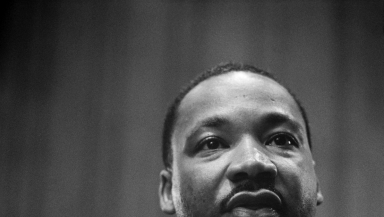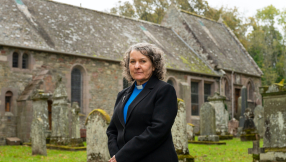
Pastors must learn to "celebrate" the differences between black and white Christians if they are to bridge the racial divide that still exists in church culture.
A new study asks why "lingering divisions" still exist along racial lines in the Church.
Finding racial unity in a congregation is a complex task that requires a deep recognition of racial differences in how Christians understand and practise their faith, says the study by Barna.
It comes as America prepares for its annual Martin Luther King Jr. Day holiday, on the third Monday of January each year, near King's birthday of January 15. One of King's dreams was that segregation would come to an end in worship.
Barna researchers are calling on pastors to understand key differences between black and white Christian leaders and worshippers.
For example, black Christian leaders are more likely to describe the process of spiritual progress as "spiritual maturation". White Christian leaders prefer the phrase "spiritual growth".
On discipleship, black Christians see it as "The process of transformation that changes us to be increasingly more like Christ through the Word, the Spirit, and circumstance." White believers see it as a "process of learning to follow Jesus Christ as Savior and Lord, seeking to observe all that Jesus commanded, by the power of the Holy Spirit and to his glory."
Black Christians are more likely to say they have been through tough times in life and that growing spiritually will help them. But they are also more likely to be held back by guilt from events in the past, the report says.

Black Christians are more likely to be "mentored" and to enjoy growing in faith in large groups and supported by family. White Christians are more likely to view their Christian faith as "private" and to prefer an individual approach.
Black Christians are also more likely to believe their personal faith impacts on society – which lines up with one of King's strong beliefs.
In line with this, far more black Christians than white Christians believe it is their public duty to evangelise. Black Christians also show higher regard for the Bible and are more likely to believe it is "totally accurate in all of the principles it teaches."
The study concludes: "As leaders and pastors we must learn to celebrate these differences rather than lament them. The particular community of faith in which we belong undoubtedly shapes the ways in which we experience and understand God, particularly the modes of discipleship – a practice central to what it means to develop a Christian identity.
"Bridging the racial divides when it comes to spiritual practice is a complex task. But it begins by observing current approaches and recognising ways in which they might be, however unintentionally, tailored toward a specific audience. Sticking to monolithic, cookie cutter approaches to discipleship and spiritual development without considering how to integrate other approaches will unlikely change the status quo."













